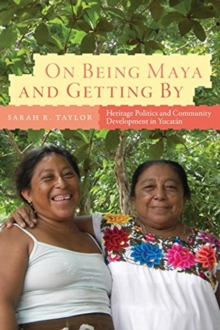
Indigenous Bodies, Maya Minds : Religion and Modernity in a Transnational K'iche' Community EPUB
by MacKenzie C. James MacKenzie
Part of the IMS Culture and Society series
EPUB
Description
Indigenous Bodies, Maya Minds examines tension and conflict over ethnic and religious identity in the K’iche’ Maya community of San Andrés Xecul in the Guatemalan Highlands and considers how religious and ethnic attachments are sustained and transformed through the transnational experiences of locals who have migrated to the United States.
Author C. James MacKenzie explores the relationship among four coexisting religious communities within Highland Maya villages in contemporary Guatemala—costumbre, traditionalist religion with a shamanic substrate; “Enthusiastic Christianity,” versions of Charismaticism and Pentecostalism; an “inculturated” and Mayanized version of Catholicism; and a purified and antisyncretic Maya Spirituality—with attention to the modern and nonmodern worldviews that sustain them. He introduces a sophisticated set of theories to interpret both traditional religion and its relationship to other contemporary religious options, analyzing the relation among these various worldviews in terms of the indigenization of modernity and the various ways modernity can be apprehended as an intellectual project or an embodied experience.
Indigenous Bodies, Maya Minds investigates the way an increasingly plural religious landscape intersects with ethnic and other identities. It will be of interest to Mesoamerican and Mayan ethnographers, as well as students and scholars of cultural anthropology, indigenous cultures, globalization, and religion.
Information
-
Download - Immediately Available
- Format:EPUB
- Pages:386 pages
- Publisher:University Press of Colorado
- Publication Date:07/04/2016
- Category:
- ISBN:9781607323945
Information
-
Download - Immediately Available
- Format:EPUB
- Pages:386 pages
- Publisher:University Press of Colorado
- Publication Date:07/04/2016
- Category:
- ISBN:9781607323945










